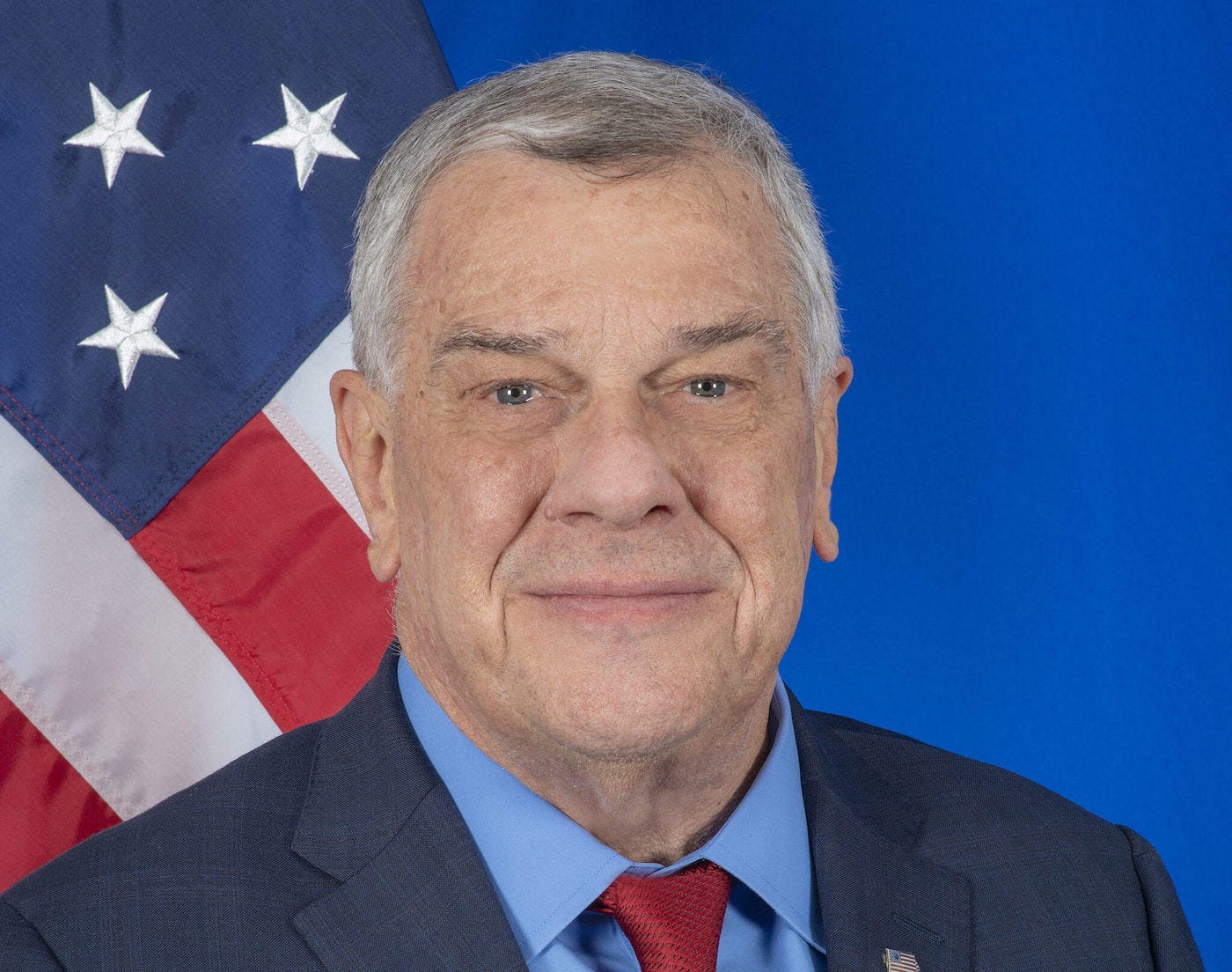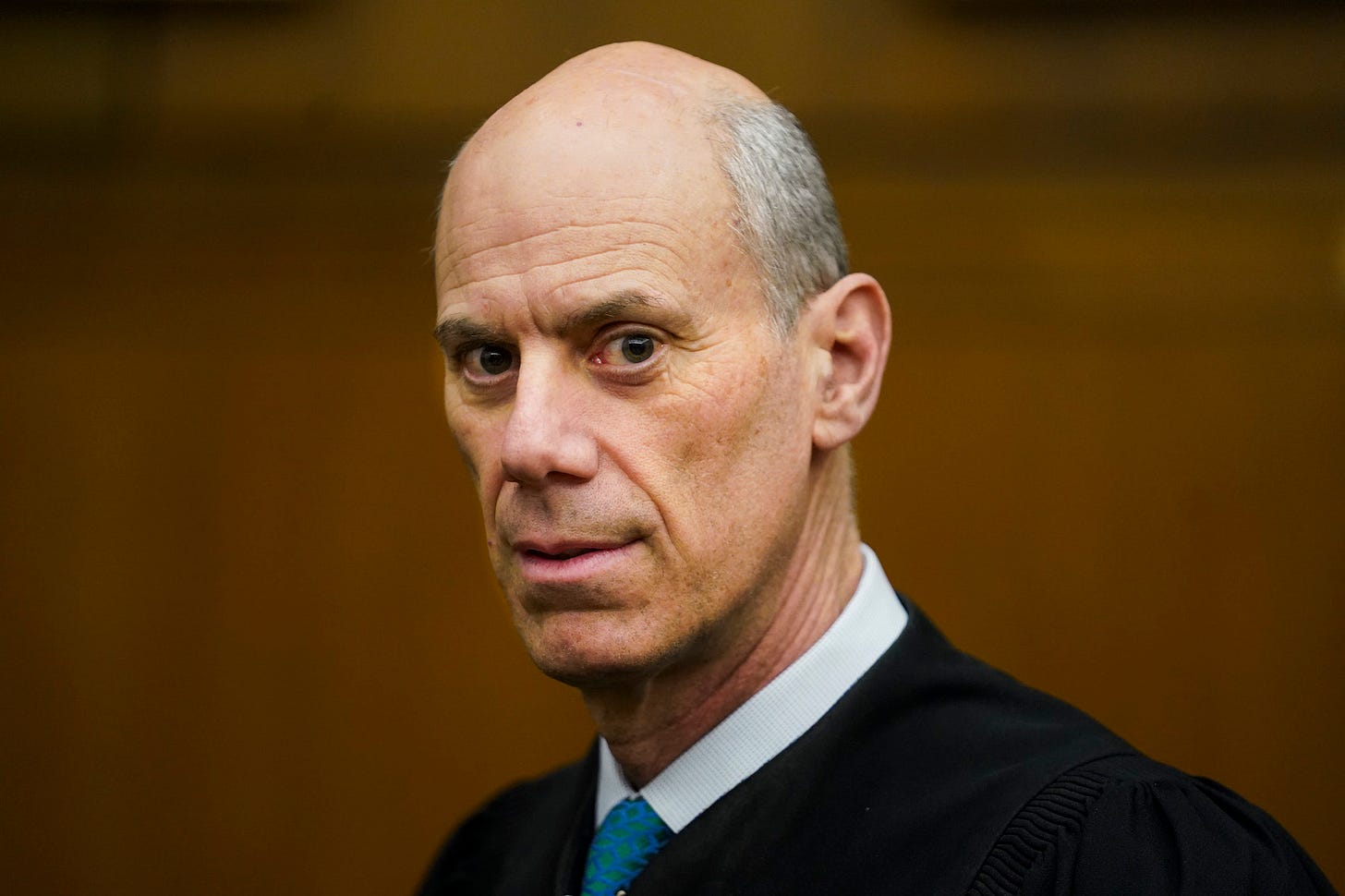Judge Boasberg's #NoKings Message to Trump on El Salvador
King George III's practice of shipping men to overseas prisons without due process helped earn him a revolution, the judge reminded Trump.
Our democracy is on trial now – and it’s up to readers like you to bring evidence that it still has life. Push back by supporting independent journalism.
In a ruling that began by invoking Franz Kafka’s “The Trial,” U.S. District Judge James Boasberg granted more than a hundred men whom the Trump administration sent to a terrorism prison in El Salvador a chance to win their freedom.
“The reason should be self-evident: the ‘due process of law’ exists so that no ‘person’ within our borders — regardless of citizenship — is deprived of his ‘liberty’ on insufficient evidence or a spurious charge,” Boasberg wrote on Wednesday.
It’s not clear what form of due process the men eventually will receive, especially given the Trump administration’s attempts to resist compliance in these cases. From a legal standpoint, fighting Boasberg’s finding would seem futile: The Supreme Court recently ruled that the men at El Salvador’s CECOT prison are entitled to due process — “with all nine Justices agreeing,” Boasberg noted.
Possible Action Item:
On June 14, hundreds of #NoKings protests will take place globally except for downtown Washington, D.C., where Trump ordered a military parade. Click here for more info.
“Beyond the seas”
Boesberg buried a message inside his nearly 70-page ruling to Donald Trump: King George III shipped colonists to overseas prisons without due process too, and he reaped the whirlwind.
“Our legal tradition is wholly incompatible with the establishment of a network of overseas prisons, shielded from the Great Writ [of habeas corpus] by the facade of foreign control, to which the government routinely exports detainees without due process — a legal no man’s land,” the ruling states. “Indeed, the Habeas Corpus Act of 1679 generally prohibited detention ‘beyond the seas’ to places where the writ did not run, […] and such abuses partly animated this nation’s War for Independence.”
Boasberg cited the colonists’ grievances listed in the Declaration of Independence, declaring George III’s tyrannical for “depriving us, in many cases, of the benefits of trial by jury” and for “transporting us beyond seas to be tried for pretended offenses.”
The Trump administration’s effort to put the men outside the court’s reach ultimately worked, at least in part.
Judge Boasberg found that he lacked jurisdiction to hear the men’s habeas corpus petitions himself because senior State Department official Michael G. Kozak wrote in a sworn declaration that El Salvador controls the “detention and ultimate disposition of those detained in CECOT.” The judge found that Supreme Court precedent prevents him from second-guessing that assertion, absent direct evidence contradicting it. That means that whatever due process the expelled immigrants receive won’t be in Boasberg’s courtroom.
“Beyond the reach of the writ”

Still, Boasberg said it’s harder to presume the “truthfulness and reliability of the Kozak declaration” because of the “government’s troubling conduct throughout this case.”
“The court is nonetheless mindful of the possibility, raised by plaintiffs, that the government has adopted and presented its arrangement with El Salvador as a ‘ruse — and a fraud on the court — designed to maintain control over the detainees beyond the reach of the writ,’” he wrote.
During a hearing last month, Judge Boasberg quoted Trump and Kristi Noem suggesting that the United States ultimately has control over the CECOT detainees. Trump said he “could” have the immigrants released if he wanted to do so, and Noem called El Salvador’s prison “one of the tools in our toolbox.”
Ultimately, Boasberg found that he must take Kozak “at his word,” despite his declaration’s “incongruity with multiple public statements made by both Salvadoran and U.S. officials.”
Boasberg ended that phase of his analysis with a warning: “The court nonetheless reminds the government that any official who makes knowingly false statements in a sworn declaration subjects himself to perjury prosecution.”
Last year, the Supreme Court gave the president of the United States, but not executive branch officials more generally, broad criminal immunity. Boasberg himself expressed a willingness to recommend criminal contempt cases himself through a private attorney if he finds charges warranted and Trump’s Justice Department refuses to bring them.




